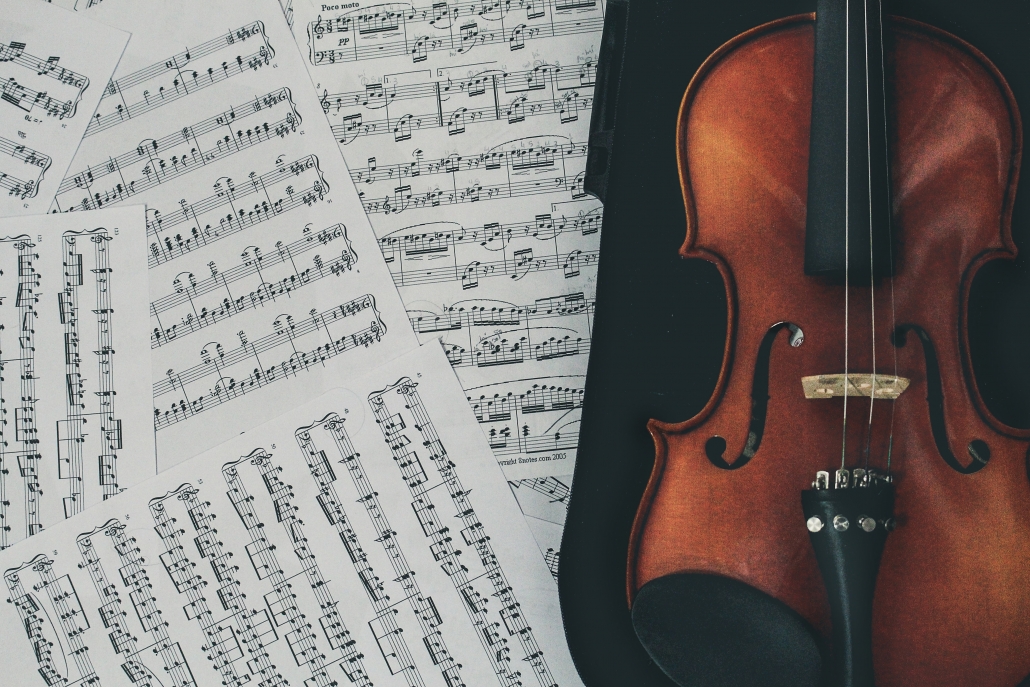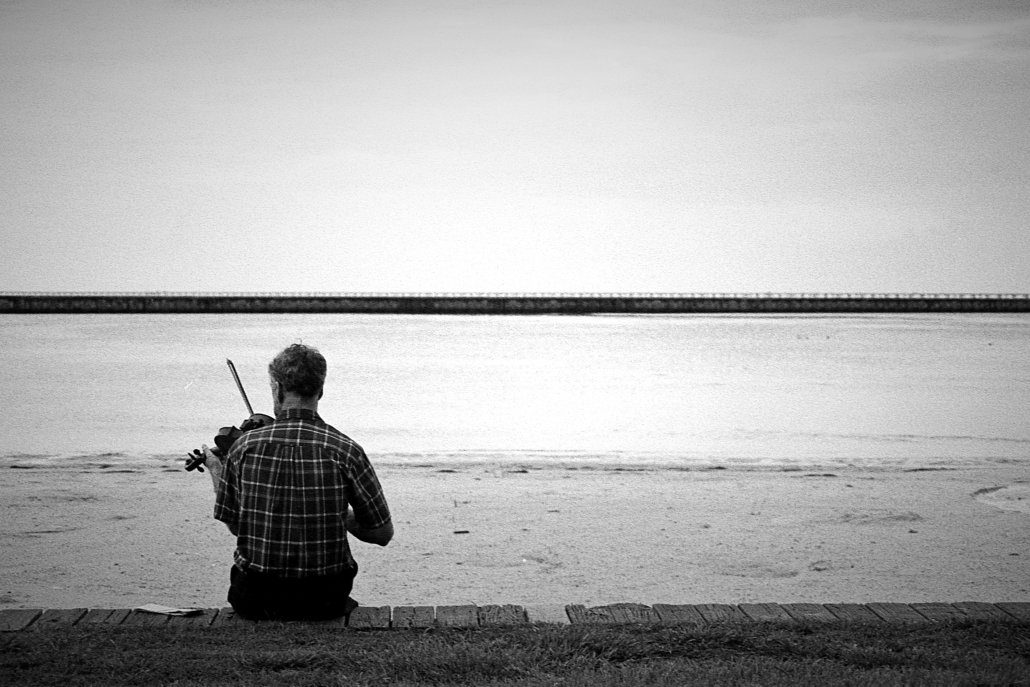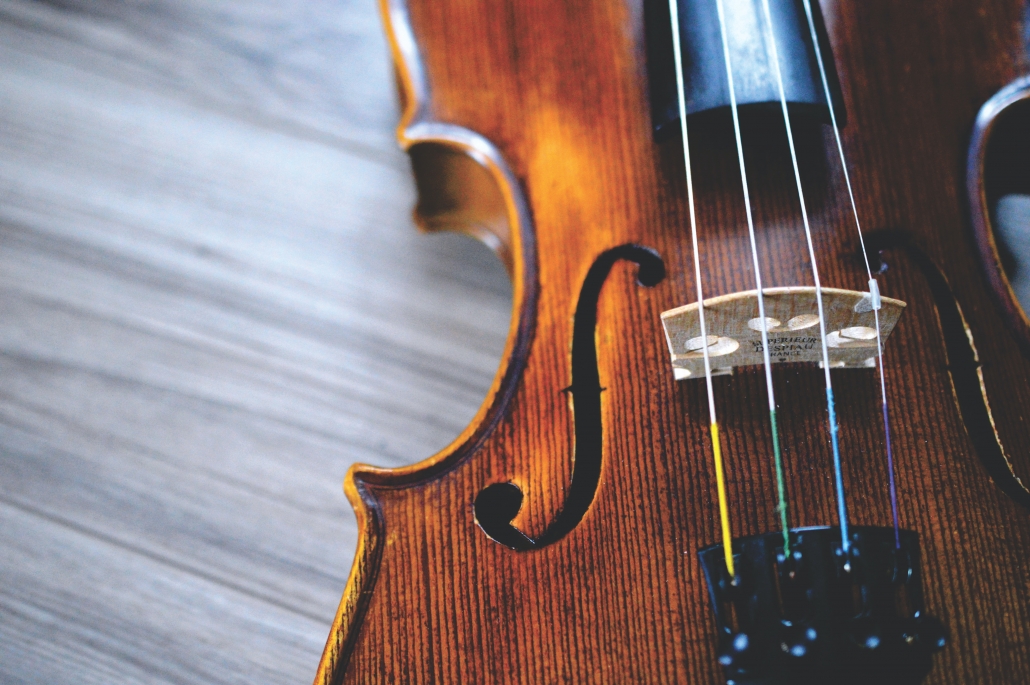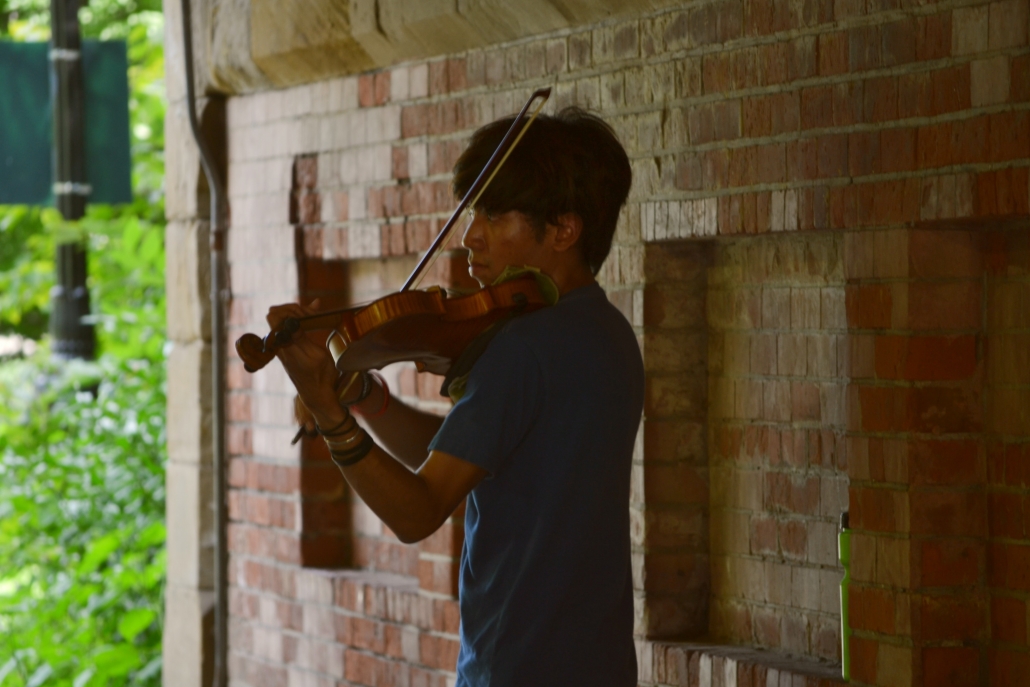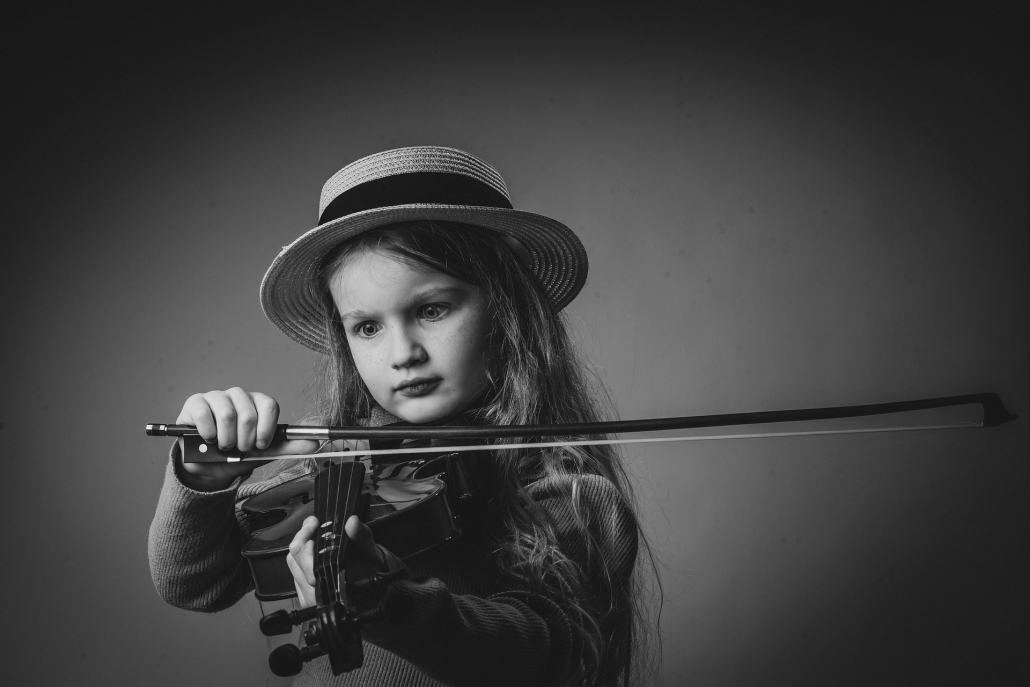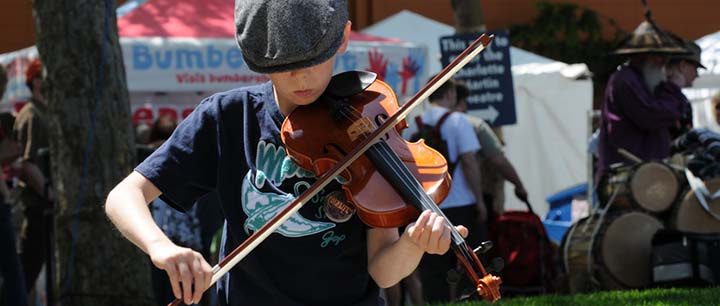 Some start optimistically young, others driven by passion start much later in life, but when is the right time to start violin lessons? Like any other form of art, there’s simply no black or white when it comes to exploring music.
Some start optimistically young, others driven by passion start much later in life, but when is the right time to start violin lessons? Like any other form of art, there’s simply no black or white when it comes to exploring music.
The right time to start can’t be measured exclusively by age. Some ambitious parents start their kids at the age of two, and while many go off to become YouTube sensations, a whole lot more tend to give up by the age of five. So what should you consider before diving into violin lessons with your children, or even personally?
In this article, we’ll explore thoughts around age versus aptitude, as well as a few options to consider if your little one is not quite ready to start violin lessons yet.
If you’re trying to decide when to start violin lessons with the child in your life, this post should serve as your ultimate guide!
What Age is Best to Start Music Lessons?
Three is the age considered by most music instructors to be the absolute earliest that a child begins to learn any instrument. Here’s why:
- Before 3, children aren’t yet developed enough to benefit from music lessons.
- Younger children may become bored and frustrated quickly.
- There’s no benefit in starting music lessons with very young children, since their memory and cognition simply isn’t mature enough yet.
- Starting music lessons too young may foster a feeling of resentment and increase cortisol levels, causing tantrums and unnecessary stress.
Even if your child starts learning violin or another instrument when he or she is three or four, the lessons will be very basic, consisting more of musical games than any structured program.
Are you curious about what your child will learn when he or she does actually start taking music lessons? Here’s a sample of what to expect:
What is a Good Age to Start Violin?
While the first five years of life are crucial to brain and motor skill development, the window of opportunity for developing musical sensibility is said to exist until the age of nine.
Of course, that does not limit learning music to the primary years. However, the first nine years of life are considered to be the optimal time for physical and mental progress in relation to musical ability and when to start violin lessons.
If you are trying to decide when to start violin lessons with your child, here are a few benefits of starting young.
Improves Brain Development
Music training, according to many studies, can help foster your child’s brain development.
It’s one of the best ways to improve your child’s motor skills, enhance his or her learning comprehension, and assist his or her cognitive growth.
Best Results
Not only that, but if you want your child to be able to pick up an instrument quickly and (relatively) easily, it’s best to start young.
The window within the first nine years of life, as previously mentioned, is ideal for teaching a child a new instrument. Particularly between the ages of four to seven, brain development is the most susceptible to the improvements that music instruction offers.
Early Immersion
Like learning any other skill or acquiring any other hobby, early immersion and exposure is key if you want your child to stick with it. If you want your child to enjoy music training later in life, fostering a love of music early on is crucial.
Now, that doesn’t mean that you have to put a violin or trumpet in your child’s hands as soon as he can walk! However, you can foster a love of music with basic activities like:
- Singing
- Taking weekly classes in rhythm and dancing
- Identifying different musical instruments together
- Clapping your hands
- Swaying or rocking to music
When to Start Violin Lessons: Age Isn’t the Only Factor
If you’re trying to decide when to start violin lessons with your child, you’ll also want to consider these other factors (besides the calendar).
Mental Development
Knowing when to start violin lessons for your child depends on multiple factors.
The common ones relate to the typical signs of mental development, like counting to five or the ability to recite at least the first six letters of the alphabet.
That said, just because your child is able to do these things, doesn’t necessarily mean that he or she is ready to start violin lessons.
Relationship With Your Child
As a parent, you should also factor in the relationship you have with your child. Here are some questions to consider:
- Can he or she play cooperatively with you and others?
- Does your little one pay attention when you’re explaining something?
- Are you ready for your child to start violin lessons, and will you assist with practice?
Your Schedule
Perhaps he or she is cooperative and able to focus – fantastic! But now, you’ll have to have to find the time in your schedule to give your child the required attention to nurture this new passion.
Being the parent of an aspiring violinist takes significant commitment and patience. It’s key that you’re also prepared to get involved in practice games to make the overall learning experience a fun one!
Keep in mind that even if you don’t have time to shuttle your child back and forth to lessons, you can always get private lessons at home or with online or software programs that are tailored for beginners like kids.
Often, these have interactive lessons that are more enjoyable for young children.
Finding the Right Instrument
When deciding when to start violin lessons, another factor you’ll need to consider is how easy it will be to find an appropriately-sized instrument.
There are plenty of children’s violins out there, but most of these are designed for kids who are at least preschool age.
You don’t want to set your child up for failure by giving him a too-large instrument, so make sure you wait until he’s big enough for a good fit.
Comfort Level with Strangers
You probably won’t be leaving your child alone with an instructor – at least not at first. However, you will want to consider how comfortable your child is with strangers in general.
A part of lessons is having an instructor handle your child’s arms and hands to show them where they need to go on the instrument.
If your child is extremely shy or resistant, violin lessons might not make sense when they’re extremely young.
How to Prepare Your Child to Start Violin Lessons
If your child is not quite ready for lessons yet, don’t force it; instead, take a few steps to prepare him or her in a relaxed, comfortable environment.
Of course, some kids are naturally more musical than others, but there are plenty of ways to help develop your little one’s sense of tune, rhythm, and focus without making it seem like a chore.
Here are a few suggestions:
Play Violin Music You Both Love
Try playing violin music during long drives or while your child is doing other activities. Even if it’s just background music, it’s important that your child starts to hear the violin daily.
Sing Together
Sing along together while listening to music. This will help build your little one’s attention to tune and pitch. As you find his or her skill developing in this kind of play, you’ll feel the ability to handle lessons getting a little closer.
Listen to Live Violin Playing
Give your child as many opportunities as possible to hear live violin playing.
Do some research about local informal settings that will allow for this kind of exposure, such as street buskers or even at church, but stay away from long and expensive concerts at first – even super-focused kids can get noisy or restless a few hours into classical concerts.
Spend Time One-on-One Together
To gauge your child’s sense of focus and cooperation, regularly do one-on-one activities together. It doesn’t have to be a musical activity, either. Even baking and gardening work! These activities will help prepare your child for participating in an activity and staying focused on one task.
When to start violin lessons is less about the appropriate age, and actually more about your child’s ability to focus and follow instructions. While doing a few of these preparatory steps you’ll have a better indication of where your little one is at. It’s also up to you to pay careful attention to what your child is doing well, and offer positive feedback.
Violin Lessons for Kids
If you feel like your child is ready to start violin lessons, go ahead. Find a violin teacher who has experience with teaching children. Take some time to consider what you want your child to get out of the lessons.
If you simply want to encourage musical appreciation, then opt for a relaxed lesson plan that highlights fun over discipline. If you’re going for a more intense route, then regular lessons and daily practice will be essential.
And while you’re getting so involved, keep in mind that young children aren’t the only ones who can learn to play the violin! We encourage students of all ages to explore the violin. When there is interest, music can be learned at any age. Good luck!
Photo by Derrick Coetzee
Suzy S.

